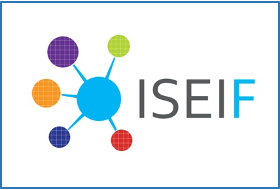The Energy Academy will provide practical guidance on how municipalities can set and deploy achievable and effective energy policies and programs at the local level. Students will receive a thorough background on the markets, policies, and regulations impacting Illinois’ energy sector. Additionally, the course will provide a deep dive into sustainability program funding in Illinois (e.g., energy efficiency, renewable energy, etc.). View the syllabus here. The course is open to municipal staff, elected officials, sustainability commissioners, and other interested local government officials.
 This course is made possible through the generous support of the Illinois Science & Energy Innovation Foundation (ISEIF).
This course is made possible through the generous support of the Illinois Science & Energy Innovation Foundation (ISEIF).
Course Goals
The course will enable enrollees to:
- Understand the basic operation of the electricity system in the U.S.
- Identify how and why prices for energy supply, delivery and taxes change over time.
- Evaluate the technological, economic, and regulatory constraints that impact the energy transition in the U.S.
- Access a variety of online data resources to support post-course research on energy issues.
- Municipal officials will feel comfortable responding to energy policies and opportunities, including evolving utility programs, after the Caucus’ ISEIF grant ends this summer.
Virtual Energy Academy Details
Start date: The seven-class course will start on Wednesday, Jan. 18th, for those who chose the Wednesday sessions and Thursday, Jan. 26th, for those who chose the Thursday sessions. Please note that the classes are held on alternating weeks. (Class 1 was held on Wednesday, Jan. 18th, for Wednesday students, and the same Class 1 will be held the next week, on Thursday, Jan. 26th.) If you are unable to attend a certain class, then please plan in advance to attend the other Wednesday/Thursday class.
Class dates: For the Wednesday class, the dates are 1/18, 2/1, 2/15, 3/1, 3/15, 3/29, 4/12, and 4/26. Please note that we canceled the Wednesday, March 29th, class. Because of that, Class 6 for the Wednesday group will be held on April 12th, and Class 7 will be held on April 26th.
For the Thursday class, the dates are 1/26, 2/9, 2/23, 3/9, 3/23, 4/6, and 4/20.
Class frequency: Every other week through mid-April
Time: Noon to 1 p.m.
Location: Virtual, on Zoom
Cost: Free
About the Instructor
Mark Pruitt is the Principal of The Power Bureau, an energy planning and procurement firm that operates in Illinois and has clients that include the City of Chicago, 60+ municipalities, and Argonne National Laboratory. He formerly worked as Director of the Illinois Power Agency and maintains a deep understanding of energy policy, regional energy markets, the renewable energy sector, and utility operations. He currently teaches energy policy at Northwestern University and the University of Illinois.
Course Materials
The Energy Academy course includes seven weeks of content. Please click on the class links below to see the materials and resources for that class.
Students who would like to receive an Energy Academy certificate must attend all seven classes. If you are unable to attend a certain class number on either the Wednesday or Thursday offering and you would still like to earn the Energy Academy certificate, there is make-up work to complete. Please watch the recording of that class number and write a paragraph about the key points you learned, what you found interesting, and list any questions you may have after watching the video. Please send this write-up to Sustainability Specialist Cheryl Scott at cscott@mayorscaucus.org, so that you will be given credit for that week of the class. **Please note: All make-up work is due by Friday, May 12th.**
Class 1 – Energy Sector: Background
Class 2 – Energy Markets: Supply, Demand and Prices
Class 3 – Energy Business: Production and Utilities
Class 4 – Energy Policy: Context and Outlook
Class 5 – Energy Transition: Goals and Constraints
Class 6 – Energy Transition: Renewable Energy
Class 7 – Energy Transition: Energy Efficiency
Energy Goals
![]() The Energy Academy supports local governments in achieving the energy goals of the Greenest Region Compact and the Climate Action Plan for the Chicago Region.
The Energy Academy supports local governments in achieving the energy goals of the Greenest Region Compact and the Climate Action Plan for the Chicago Region.
